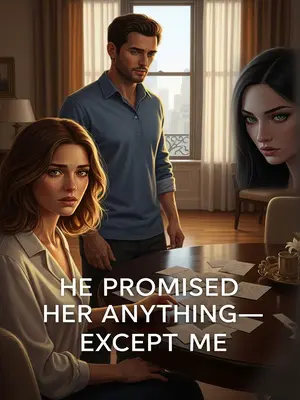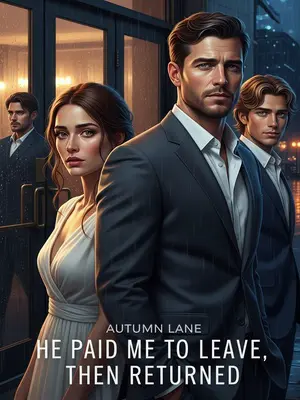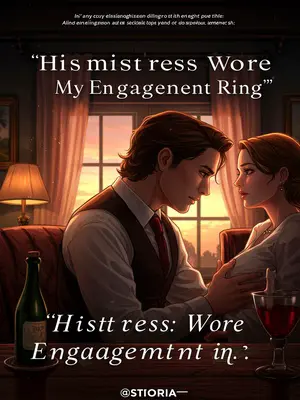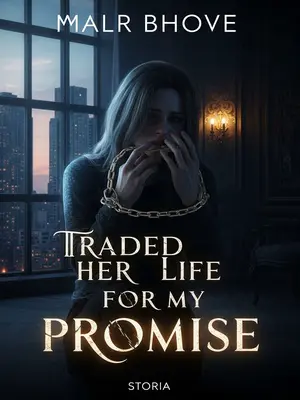Chapter 5: The Dinner Table Betrayal
The next day, the research group’s celebration dinner was at a hotel near State U. For once, Carter invited me along.
It felt like a peace offering, or maybe just a way to keep up appearances. I pulled out a dress I hadn’t worn in years, tried to remember how to do my makeup. I caught sight of myself in the mirror and almost laughed—who was I kidding? The hotel lobby was all polished marble and muted jazz, the kind of place where everyone seemed to know everyone else.
“Today, our paper got accepted by a top journal. Sophia insisted on inviting you, ‘Mrs. Whitman’.”
While tying his tie, he even put on cologne. The cufflinks were the birthday gift I’d given him last month.
He looked good—too good. I tried not to let it show.
Sophia sat to his right—black dress, pearl earrings, nails painted a subtle nude pink. She leaned in slightly, her fingers resting on his cuff, her voice just the right amount of sweet:
“Professor Whitman, I remember this grilled ribeye is your favorite.”
She picked up a piece, dipped it in sauce, and gently placed it on his plate.
Carter nodded. “You’re quite attentive.”
The table laughed politely. I forced a smile, my hands gripping the napkin in my lap. I told myself to breathe. The whole scene felt staged, like we were actors in someone else’s play.
I stared at that piece of steak, remembering how, last month, I’d made his favorite braised short ribs for dinner. He only ate a couple bites, saying his stomach couldn’t handle greasy food lately.
Turns out it wasn’t that he couldn’t handle greasy food—he just didn’t want to eat what I made.
The realization was sharp, almost funny. I wondered how many other little lies I’d swallowed over the years, how many truths I’d chosen not to see.
Halfway through the dinner, Sophia raised her glass and downed it in one go:
“This paper only got accepted because of Professor Whitman. If you hadn’t stayed up all night helping me fix the algorithm, the data would never have worked. Without you, I wouldn’t be here.”
The room buzzed with admiration. I watched Carter’s face—he looked pleased, but not surprised. He’d always liked being the hero.
Carter waved her off, took a sip of wine. “The real credit goes to Sophia’s family for providing the computing resources. Using the supercomputing center is a whole different world. I don’t know how we survived those days waiting in line for GPUs in the computer lab.”
He laughed, the sound a little too loud, a little too bright. The table joined in, everyone eager to share in the glow of success.
“Mrs. Whitman.”
A guy across the table suddenly turned to me, curious:
“You write at home, right? Must be pretty relaxing. Not like us, getting tormented by data every day.”
His tone was light, almost teasing, but I felt the sting underneath. I forced a smile, searching for the right words.
Before I could answer, Sophia laughed softly and turned to Carter:
“Writing sounds great—so free, no barriers, anyone can do it. Unlike us, always being chased by deadlines. Professor Whitman, don’t you think so?”
Her words were honeyed, but I caught the edge. I looked at Carter. Waiting for him to say something—anything.
Carter glanced at me, his expression complicated. In the end, he just said lightly:
“Writing really isn’t as restrictive.”
His words landed between us like a wall. I looked down at my plate, suddenly not hungry.
I gripped my glass, the cold water chilling my palm.
The condensation slid down my fingers, grounding me. I took a slow sip, willing myself not to react. Don’t show them anything, I told myself. Don’t let them see you flinch.
Sensing the awkwardness, Sophia tried to smooth things over with a smile:
“Don’t mind him, Mrs. Whitman. Professor Whitman’s just too much of a perfectionist—he even makes me change the punctuation in my papers three times.”
She laughed, and the table laughed with her. I wanted to disappear.
“I’m going to the restroom.”
I got up and left. The cold air in the hallway cooled the heat in my cheeks. For a moment, I just stood there, letting the chill settle into my skin, trying to remember who I was before all this.
I walked quickly, heels clicking against the tile, heart pounding. In the mirror, my reflection looked older, tired—lipstick smudged, eyes rimmed with red.
I hardly recognized myself.
I fumbled in my purse for a tissue, dabbing at my mouth. I took a deep breath, trying to steady myself. I’d survived worse.
Footsteps sounded behind me—Carter had followed.
His reflection appeared over my shoulder, taller and somehow more distant than ever. He hesitated, hands in his pockets.
“Harper, don’t overthink it. Sophia is just a student.”
His voice was soft, almost pleading. I searched his face for something familiar, something real.
I stared into his eyes. “A student?”
The word hung in the air. Heavy with everything I couldn’t say.
“Have you ever seen a student with such poor boundaries?”
My voice caught in my throat. I couldn’t go on.
I wanted to scream, to demand answers, but the words wouldn’t come. I just stood there, shaking.
Sophia’s name flashed on Carter’s phone screen. The message preview was clear:
“Just got word—my grandpa says this project can be nominated for the National Science Award. Would you like to be the first author?”
The phone buzzed again, the message glowing between us. Carter glanced at it, then turned off the screen.
“Let’s go back. Everyone’s waiting.”
His tone was final, like a door closing. I didn’t move.
I stood there, unmoving.
My feet felt glued to the floor. I stared at the tiles, counting the cracks, anything to keep from falling apart.
He waited a few seconds, saw I wasn’t following, and finally sighed:
“Then rest a bit. I’ll go handle things.”













